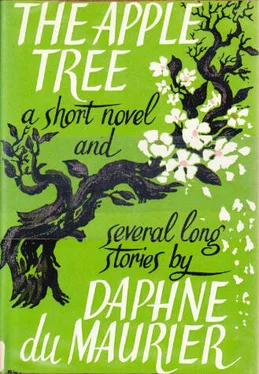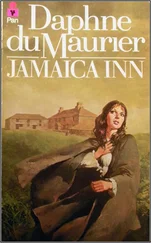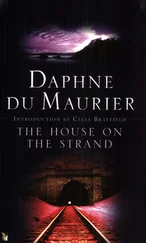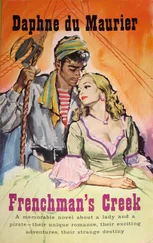Daphne du Maurier - The Apple Tree - a short novel & several long stories
Здесь есть возможность читать онлайн «Daphne du Maurier - The Apple Tree - a short novel & several long stories» весь текст электронной книги совершенно бесплатно (целиком полную версию без сокращений). В некоторых случаях можно слушать аудио, скачать через торрент в формате fb2 и присутствует краткое содержание. Жанр: Современная проза, Триллер, Социально-психологическая фантастика, на английском языке. Описание произведения, (предисловие) а так же отзывы посетителей доступны на портале библиотеки ЛибКат.
- Название:The Apple Tree: a short novel & several long stories
- Автор:
- Жанр:
- Год:неизвестен
- ISBN:нет данных
- Рейтинг книги:5 / 5. Голосов: 1
-
Избранное:Добавить в избранное
- Отзывы:
-
Ваша оценка:
- 100
- 1
- 2
- 3
- 4
- 5
The Apple Tree: a short novel & several long stories: краткое содержание, описание и аннотация
Предлагаем к чтению аннотацию, описание, краткое содержание или предисловие (зависит от того, что написал сам автор книги «The Apple Tree: a short novel & several long stories»). Если вы не нашли необходимую информацию о книге — напишите в комментариях, мы постараемся отыскать её.
The Apple Tree: a short novel & several long stories — читать онлайн бесплатно полную книгу (весь текст) целиком
Ниже представлен текст книги, разбитый по страницам. Система сохранения места последней прочитанной страницы, позволяет с удобством читать онлайн бесплатно книгу «The Apple Tree: a short novel & several long stories», без необходимости каждый раз заново искать на чём Вы остановились. Поставьте закладку, и сможете в любой момент перейти на страницу, на которой закончили чтение.
Интервал:
Закладка:
Her eyes fell to the boot. His limp was not so pronounced as the sister's, he did not walk with that lurching, jerky step that produced stifled hysteria in the watcher. His step was slow, more dragging, and the Marquise felt a kind of compassion for his deformity, for surely the misshapen foot beneath the boot must pain him constantly, and the high boot, especially in hot weather, crush and sear his flesh.
"Now, Madame la Marquise," he said, and guiltily she raised her eyes from the boot and struck her pose, smiling gracefully, her arms embracing the children.
"Yes," he said, "just so. It is very lovely."
The dumb brown eyes held hers. His voice was low, gentle. The sense of pleasure came upon her just as it had done in the shop the day before. He pressed the bulb. There was a little clicking sound.
"Once more," he said.
She went on posing, the smile on her lips; and she knew that the reason he paused this time before pressing the bulb was not from professional necessity, because she or the children had moved, but because it delighted him to gaze upon her.
"There," she said, and breaking the pose, and the spell, she moved towards the balcony, humming a little song.
After half an hour the children became tired, restless.
The Marquise apologised. "It's so very hot," she said, "you must excuse them. Céleste, Hélène, get your toys and play on the other corner of the balcony."
They ran chattering to their own room. The Marquise turned her back upon the photographer. He was putting fresh plates into his camera.
"You know what it is with children," she said. "For a few minutes it is a novelty, then they are sick of it, they want something else. You have been very patient, Monsieur Paul."
She broke off a rose from the balcony, and cupping it in her hands bent her lips to it.
"Please," he said with urgency, "if you would permit me, I scarcely like to ask you…"
"What?" she said.
"Would it be possible for me to take one or two photographs of you alone, without the children?"
She laughed. She tossed the rose over the balcony to the terrace below.
"But of course," she said, "I am at your disposal. I have nothing else to do."
She sat down on the edge of the chaise longue, and leaning back against the cushion rested her head against her arm.
"Like this?" she said.
He disappeared behind the velvet cloth, and then, after an adjustment to the camera, came limping forward.
"If you will permit me," he' said, "the hand should be raised a little, so… And the head, just slightly on one side."
He took her hand and placed it to his liking; and then gently, with hesitation, put his hand under her chin, lifting it. She closed her eyes. He did not take his hand away. Almost imperceptibly his thumb moved, lingering, over the long line of her neck, and his fingers followed the movement of the thumb. The sensation was feather-weight, like the brushing of a bird's wing against her skin.
"Just so," he said, "that is perfection."
She opened her eyes. He limped back to his camera.
The Marquise did not tire as the children had done. She permitted Monsieur Paul to take one photograph, then another, then another. The children returned, as she had bidden them, and played together at the far end of the balcony, and their chatter made a background to the business of the photography, so that, both smiling at the prattle of the children, a kind of adult intimacy developed between the Marquise and the photographer, and the atmosphere was not so tense as it had been.
He became bolder, more confident of himself. He suggested poses and she acquiesced, and once or twice she placed herself badly and he told her of it.
"No, Madame la Marquise. Not like that. Like this,"
Then he would come over to the chair, kneel beside her, move her foot perhaps, or turn her shoulder, and each time he did so his touch became more certain, became stronger. Yet when she forced him to meet her eyes he looked away, humble and diffident, as though he was ashamed of what he did, and his gentle eyes, mirroring his nature, would deny the impulse of his hands. She sensed a struggle within him, and it gave her pleasure.
At last, after he had rearranged her dress the second time, she noticed that he had gone quite white and there was perspiration on his forehead.
"It is very hot," she said, "perhaps we have done enough for today."
"If you please, Madame la Marquise," he answered, "it is indeed very warm. I think it is best that we should stop now."
She rose from the chair, cool and at her ease. She was not tired, nor was she troubled. Rather was she invigorated, full of a new energy. When he had gone she would walk down to the sea and swim. It was very different for the photographer.
She saw him wipe his face with his handkerchief, and as he packed up his camera and his tripod, and put them in the case, he looked exhausted and dragged his high boot more heavily than before.
She made a pretence of glancing through the snap-shots he had developed for her from her own film.
"These are very poor," she said lightly. "I don't think I handle my camera correctly. I should take lessons from you."
"It is just a little practice that you need, Madame la Marquise," he said. "When I first started I had a camera much the same as yours. Even now, when I take exteriors, I wander out on the cliffs above the sea, with a small camera, and the effects are just as good as with the larger one."
She put the snap-shots down on the table. He was ready to go. He carried the case in his hand.
"You must be very busy in the season," she said. "How do you get time to take exteriors?"
"I make time, Madame la Marquise," he said. "I prefer it, actually, to taking studio portraits. It is only occasionally that I find true satisfaction in photographing people. Like, for instance, today."
She looked at him and she saw again the devotion, the humility, in his eyes. She stared at him until he dropped his eyes, abashed.
"The scenery is very beautiful along the coast," he said. "You must have noticed it, when walking. Most afternoons I take my small camera and go out on to the cliffs, above the big rock that stands there so prominent, to the right of the bathing beach."
He pointed from the balcony and she followed the direction of his hand. The green headland shimmered hazily in the intense heat.
"It was only by chance that you found me at home yesterday," he said. "I was in the cellar, developing prints that had been promised for visitors who were to leave today. But usually I go walking on the cliffs at that time."
"It must be very hot," she said.
"Perhaps," he answered. "But above the sea there is a little breeze. And best of all, between one and four there are so few people. They are all taking their siesta in the afternoon. I have all that beautiful scenery to myself."
"Yes," said the Marquise, "I understand."
For a moment they both stood silent. It was as though something unspoken passed between them. The Marquise played with her chiffon handkerchief, then tied it loosely round her wrist, a casual, lazy gesture.
"Some time I must try it for myself," she said at last, "walking in the heat of the day."
Miss Clay came on to the balcony, calling the children to come and be washed before déjeuner. The photographer stepped to one side, deferential, apologising. And the Marquise, glancing at her watch, saw that it was already midi, and that the tables below on the terrace were filled with people and the usual bustle and chatter was going on, the tinkle of glasses, the rattle of plates, and she had noticed none of it.
She turned her shoulder to the photographer, dismissing him, deliberately cool and indifferent now that the session was over and Miss Clay had come to fetch the children.
Читать дальшеИнтервал:
Закладка:
Похожие книги на «The Apple Tree: a short novel & several long stories»
Представляем Вашему вниманию похожие книги на «The Apple Tree: a short novel & several long stories» списком для выбора. Мы отобрали схожую по названию и смыслу литературу в надежде предоставить читателям больше вариантов отыскать новые, интересные, ещё непрочитанные произведения.
Обсуждение, отзывы о книге «The Apple Tree: a short novel & several long stories» и просто собственные мнения читателей. Оставьте ваши комментарии, напишите, что Вы думаете о произведении, его смысле или главных героях. Укажите что конкретно понравилось, а что нет, и почему Вы так считаете.












